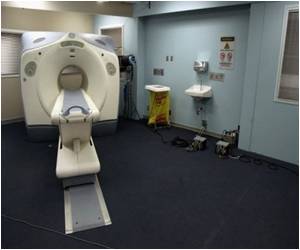Helicobacter. pylori bacteria has been found to be associated with an increased risk of colorectal cancer risk, especially in African-Americans says the new study.

‘One H. pylori protein, in particular, VacA, had the strongest association with increased odds of colorectal cancer among the African American patients in the study’
Read More..




But in an analysis of more than 4,000 colorectal cancer cases culled from large, diverse cohort studies, the researchers found a significant correlation between colorectal cancer incidence and those who had been infected with a virulent strain of H. pylori that is especially common among African Americans.Read More..
"The link between infection and cancer is intriguing, particularly if we can eradicate it with a simple round of antibiotics," said lead author Meira Epplein, Ph.D., co-leader of Cancer Control and Population Sciences at Duke Cancer Institute. "Our study provides strong evidence that we need to pursue this research to establish a definitive cause-and-effect."
Epplein and colleagues collected data from 10 large regional and national studies, including the Southern Community Cohort Study, the Nurses Health Study, the Women’s Health Initiative and the American Cancer Society’s Cancer Prevention Study-II, among others.
They analyzed blood samples from more than 8,400 ethnically and regionally diverse study participants -- half who went on to develop colorectal cancer and the other half with no such diagnosis.
The researchers found that H. pylori infections were equally common in both cancer and non-cancer group, with 4 in 10 patients in both groups testing positive for exposure to the bacterium.
Advertisement
Further analysis showed that antibodies to four H. pylori proteins were most often present among the different ethnic groups with colorectal cancer. One H. pylori protein, in particular, VacA, had the strongest association with increased odds of colorectal cancer among the African American patients in the study, and, specifically, high levels of antibodies to this protein were associated with colorectal cancer incidence in both African Americans and Asian Americans.
Advertisement
Epplein said additional studies might also determine whether antibodies to the H. pylori VacA protein could serve as a marker of colorectal cancer risk if it isn’t causing cancer directly.
Source-Eurekalert














